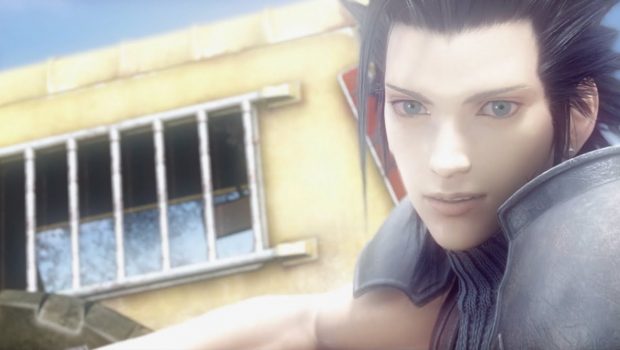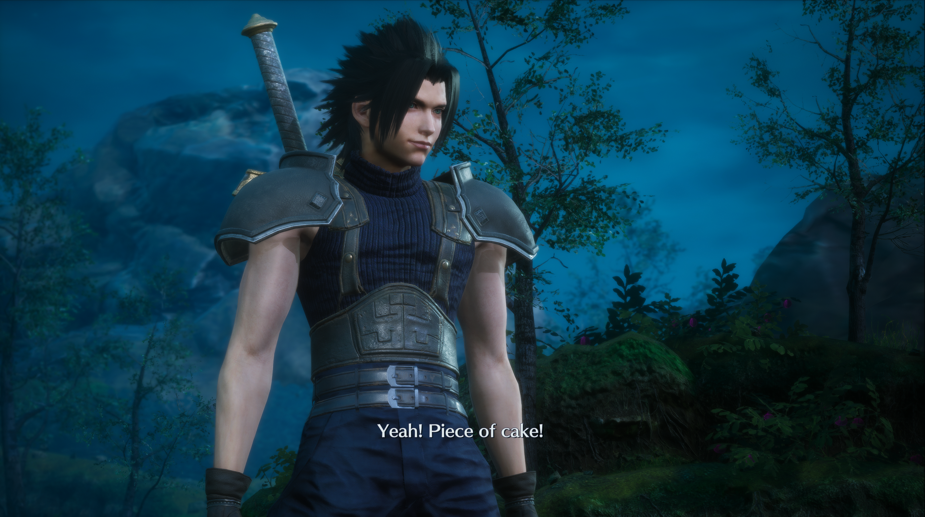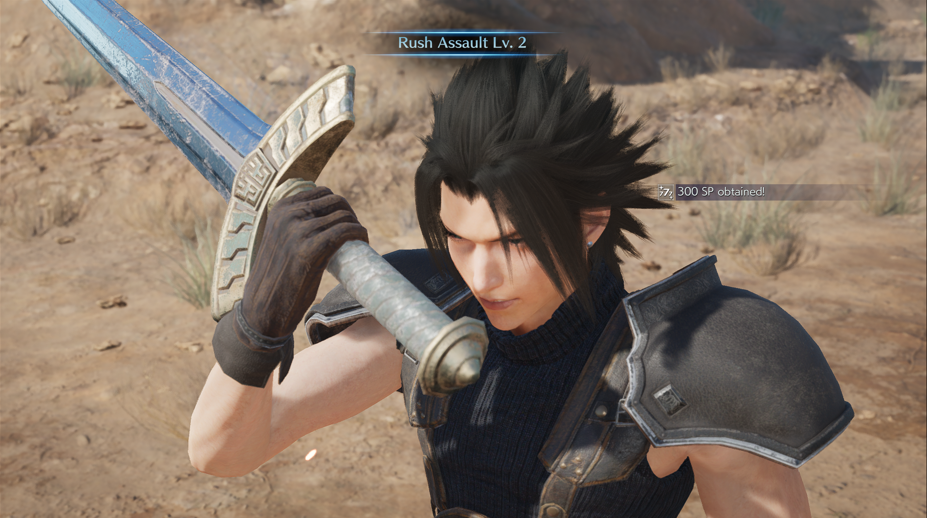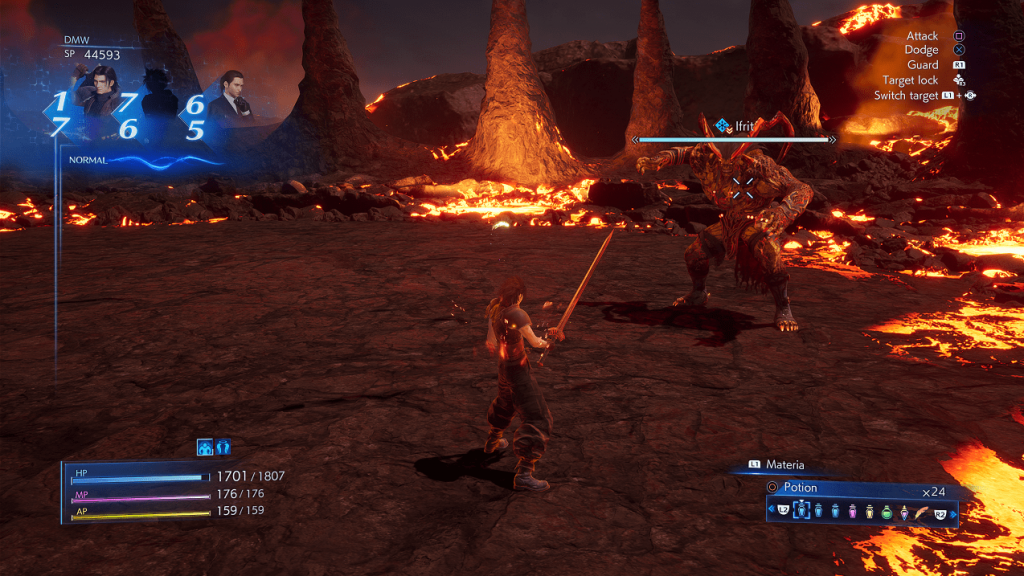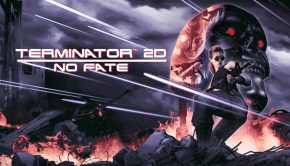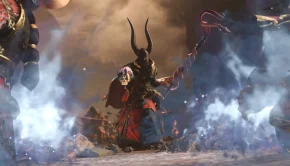Crisis Core: Final Fantasy VII Review (PC)
Summary:
4.1
Amazing and addictive combat.
For a series that started in 1987, the Final Fantasy franchise has amassed over 15 mainline games and over one hundred spin-offs, numbers that would make Tommy Tallarico jealous. Some of these mainline games have been huge cult favourites from Final Fantasy Tactics, to sequels to mainline games like X-2 or the sequels in the XIII series, which some could argue succeed the original game.
Square Enix have always been leaders in providing exciting exclusive titles to new gaming consoles, and I would argue this era peaked in the years of the PSP. Square invested heavily into the PSP, developing some of the most important games in some of their most important franchises like Birth By Sleep – an incredibly anticipated sequel to Kingdom Hearts 2 that had been teased for years in a post-credit scene. There were also remasters of the original NES and gameboy games, my favourite being Final Fantasy IV and its sequel. Another really great game to come from this era was Final Fantasy Dissidia – a Super Smash Bros inspired beat em up, placing all the characters from the series into an arcade fighter.
Square Enix would also dabble with animated movies, providing us with a mixed sequel movie to Final Fantasy VII with Advent Children. While the movie was nothing too amazing outside of a few fight sequences, it did set an interesting precedent of Square Enix returning to previous mainline games, which begged the question if we would see more of Final Fantasy VII in the future. We eventually did two years later with the prequel game Crisis Core.
A prequel to Final Fantasy VII made so much sense as the original had established a rich and interesting world with plenty of events having happened just before the game starts with Cloud blowing up that reactor with Barret. Because of issues with the original Final Fantasy VII translation as well, a lot of the game was left to each players interpretations of events, but there were still plenty of questions.
Most of them surrounded Sephiroth and Jenova but also this character Zack, who was the catalyst to one of the biggest plot twists in the game that directly impacted how we saw Cloud. In Crisis Core, we get to finally know who Zack is, their relationship with Cloud and what happened at Nibelheim from a reliable narrator.
Crisis Core was released in 2007 with fairly good reviews, with many fans and critics accepting it as a worthy entry into the Final Fantasy VII lore.
I remember playing the game 5 years or so after it had been released at the young ol’ age of 13, which in hindsight was perfect at the time. I was obsessed with this game for its combat and extensive list of missions. The game also had an incredible soundtrack, and peak fight scene cinematics that made a teenager want to edit an AMV mashup with an Evanescence song.
Now after the success of Final Fantasy VII‘s long-awaited remake, which teased Zack still being alive, audiences are now able to dive into Crisis Core without having to buy a niche console and find out what is up with this guy.

Despite being an incredible remake that is very faithful to the original, this is a bit of a monkey’s paw wish. What doesn’t hold up too well is the story and its lead protagonist. What I used to remember as campy and cool as a 13 year old now comes across as painfully awkward. You play as Zack, a Second-Class SOLDIER whose dream is to become a hero but is being held back by their biggest weakness – constantly turning their back on an enemy in every cutscene. This happens twice in just the first chapter alone.
In my opinion, Zack may just be the worst Final Fantasy protagonist in the entire series as at least Tidus had an emotional range that was consistent. Zack bellyflops from being a brainwashed war criminal to a womanising himbo, to a perfect moral figure. The game really wants to stress Zack’s likeability as almost everyone, even Sephiroth in a way, admires him despite him seemingly being an incompetent vacant manchild for the first half of the game. A reason this bothers me so much is the game’s dialogue has this issue of overexplaining everything to you multiple times, and it consistently feels patronising. When Zack takes forever to realise basic key information in the game on things he should already be aware of, given his high position in Shinra, it comes across as tedious and destroys any credibility Zack has in achieving his dream of making it as a First Class SOLDIER.
Thankfully as the game progress he takes on more responsibility and grows up, however with how condensed the story is, it moves too fast and suddenly. This doesn’t mean you don’t get attached to Zack and his innocent naivety, you do, and come to respect him a lot more as the game continues. However, the first half of the game almost goes out of its way to show you how incompetent he is that kinda kills the replayability for me.
However, what does make this game absolutely kick-ass is its gameplay. The gameplay is very faithful to the original, but smoother. With a slick and visually impressive UI update, this game looks and feels so good to play. If you were a fan of the combat in the Final Fantasy VII remake, this will feel incredibly familiar. There is no Tactics mode in this game however, and you are limited to only playing as Zack for the entire game.
As a PC port, I found the game ran really well with very limited framerate drops. Load times were also pretty good and didn’t take too long either. However, you will need a fairly modern graphics card to run this game. When first loading into the game with my measly Radeon RX 5600, the game could not load. Only after upgrading to a hefty 3080 that everything started to run smoothly as expected. This is a reminder to pay attention to Steam’s recommended minimum requirements for new releases. My other only complaint about the port is honestly very minor and just nitpicky. However, it’s important to highlight that this game was in no way built for a keyboard and mouse.
I stubbornly attempted to use a keyboard and mouse for the first chapter just to get a feel for how they ported it and I cannot stress enough how bad it feels to play the game. Keybinds are too spread out and you’ll find yourself contorting your hands to reach across the board to activate a quick time event or to cast a spell. This may suck if you don’t have a controller yourself, so I, unfortunately, have to recommend that you get one if you’re really keen on playing the Final Fantasy VII remakes.
The ideal way to play this game is with a controller and thankfully the game feels incredible to play when you do. Combos feel amazing to pull off from weaving regular attacks to weapon arts, however, what I really loved was the wide number of abilities you could take into combat as well. Magic is definitely a bit overpowered in the early game, and you will find yourself hanging back a lot spamming Blizzard and Fira to one-shot mobs quickly. But when Materia fusing unlocks in chapter 3 and you get to go all out on unique weapon arts, you’ll find yourself really experimenting with different builds and attacks that kept the game feeling fresh and interesting.
A key feature of the game is the Digital Mind Wave (DMW) mechanic, this games take on Final Fantasy VII’s Limit Break mechanic. A slot machine will spin continuously in the top left of the screen and when certain numbers are rolled you will gain timed bonuses like reductions to damage, no-cost on abilities or boosts to your stats. This is also the primary way you will level up as there is no experience in the game, only Slot Points (SP). As you kill more mobs, you will accumulate more SP which heightens your chances at a level up.
The other key part of the DMW mechanic is certain characters are included here as well, and when you roll three of them, you can activate a special move that does a ton of damage, and gives you a ton of SP for activating. Sometimes Summons can be used here as well through a special gauge. Sometimes when a character’s limit break is selected, you’ll get to see a unique story cinematic with the character that helps to flesh out Zack’s relationship with them. These helped so much build more credibility for Zack as we see him hold his own alongside these very capable characters, and flesh out his relationship with them.
If this mechanic sounds a bit confusing, don’t worry as it’s all automatic and can mostly be ignored. You can just go on with combat as you like and occasionally a prompt will show up to press a button to activate a quick time action sequence that will deal a ton of damage. A good comparison is Kingdom Hearts 3‘s ride attraction moves, although these come less frequently and are less game-breaking in this game.
Another stellar aspect of this game is the music. If there’s one thing you can always expect from a Final Fantasy game is incredible music that will stick with you. I remember being a kid and downloading “The Price Of Freedom” through a Youtube to MP3 converter just to get it on my iPod. Despite not being a mainline game, the composers Takeharu Ishimoto and Kazuhiko Toyama put their whole composerussy into this soundtrack and it sounds incredible.
Sadly the worst part of the game’s sound design is honestly the voice acting. We’re definitely spoiled now in the Dub department of anime as it’s slowly become a bit more of a viable option for audiences throughout the years. Crisis Core is a harsh reminder of how stiff and awkward the worst of Dub translations can be. There are so many awkward laugh-out-loud moments that give the Star Wars prequels a run for their money in how guffawed you’ll be by some of the performances. The writing for the dialogue is also really rough, with over-the-top deliberately bad lines. My favourite is when Zack lectures Aerith on how capitalism works and her mind is blown that money can be exchanged for goods and services.
Crisis Core continues the trend with the Final Fantasy VII remakes knocking it out of the park in showing how Final Fantasy should be updated and modernised for the current gaming generation. With excellent and addictive combat, with plenty of depth to keep you experimenting for hours, you’ll definitely get lost in how the game feels.
The entry also provides some great world-building and lore to the original game, which in my opinion, enhances my own enjoyment and appreciation of the series, and clarifies a lot of misconceptions about the original. My only wish is that the series would consider following in Final Fantasy XIV‘s footsteps and hiring genuinely good writers for dialogue, as some moments could seriously cause people to drop the game over how bad the dialogue could be and how frequent cutscenes interrupt combat at the start of the game.
Overall I really enjoyed my time with Crisis Core as it was both a great nostalgic revisit, but also a good game to help kill time waiting for the next instalment to the Final Fantasy VII remake trilogy.
Final Thoughts?
If you played the original Crisis Core and are looking for an excuse to revisit the game, the remaster is definitely the ideal way to play it as everything has been updated to current generation standards. This remaster also doesn’t change much from the original story, so you don’t have to worry about the canon of the series either.


